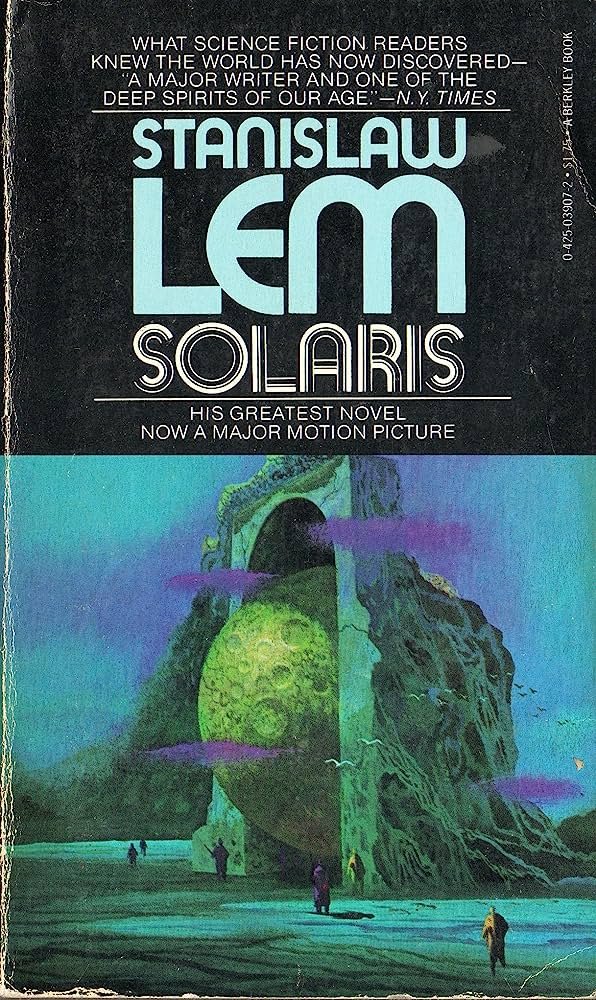"Solaris" by Stanisław Lem: A Thought-Provoking Journey into the Depths of Science Fiction
Today, I am thrilled to explore the depths of "Solaris," the science fiction novel crafted by the highly regarded Polish author, Stanisław Lem.

Pros:
One of the standout aspects of "Solaris" lies in its captivating mystery and intriguing twists. Lem masterfully weaves a web of enigma and suspense, drawing readers into a complex narrative that keeps them guessing until the very end. The exploration of the unknown and the unexplained phenomena surrounding the planet Solaris create an atmosphere of awe and fascination.
The main character of the novel is another strong point, as Lem successfully develops a deeply relatable and emotionally engaging protagonist. Readers quickly become attached to the main character, sharing in his experiences, doubts, and vulnerabilities. This emotional connection adds depth and humanity to the story, making it all the more immersive.
Lem's science fiction setting in "Solaris" is a refreshing departure from the Western canon of the genre. The author brings a unique perspective and cultural influence to his storytelling, offering readers a glimpse into a science fiction world that is distinct and unfamiliar to the Western readers. This divergence from the norm adds novelty and enriches the reading experience.
Philosophical exploration is at the heart of "Solaris”, presenting readers with a multitude of profound questions to ponder. Lem delves into themes of consciousness, identity, love, and the limits of human understanding. These philosophical inquiries encourage readers to contemplate the intricacies of existence and challenge their perspectives on reality.
The novel's ending is nothing short of fascinating, providing a scientific explanation that sheds light on the perplexing events that unfold on the planet Solaris. Lem's ability to merge scientific concepts with the imaginative realm of fiction is a testament to his literary prowess.
Cons:
One aspect that may pose a challenge for some readers is the slow pace of the story. Lem takes his time unraveling the narrative, allowing readers to delve deeply into the complexities of the plot and its philosophical underpinnings. While this deliberate pace contributes to the novel's thought-provoking nature, it may test the patience of those seeking a more fast-paced reading experience.
The fate of the main character may leave some readers feeling slightly disappointed. Without giving away any spoilers, Lem's narrative choices regarding the protagonist's journey might not align with certain readers' expectations. It definitely did not align with mine. However, it is worth noting that this divergence from traditional storytelling conventions adds to the novel's thematic depth and complexity.
Another potential drawback is the author's use of complex language and intricate concepts. Lem's writing style can be intellectually demanding at times, with an extensive vocabulary and scientific references that may pose a challenge for readers unfamiliar with the subject matter. However, for those willing to embrace the intellectual challenge, this complexity offers an opportunity for deeper exploration and intellectual stimulation.
Conclusion:
"Solaris" is a masterpiece of science fiction that transcends the boundaries of the genre. Stanisław Lem's thought-provoking exploration of the human condition and the mysteries of the universe leaves a lasting impact on readers. The novel's ambitious scope and its ability to ignite intellectual discussions make it a compelling read for enthusiasts of both science fiction and philosophical literature. I rate it a strong 8 out of 10!
Please mind, that I read it in Polish. I heard that the English translation is good, but I can't vouch for it's quality.
The review of the book is really good to read.
True, all true. Lem is a brilliant author.